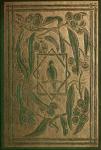
y
 Loved, and Lost! The True Story of a Short Life : Told In Gossip Verse
single work
children's
"The tallest tree in any British wood"
Loved, and Lost! The True Story of a Short Life : Told In Gossip Verse
single work
children's
"The tallest tree in any British wood"
 Loved, and Lost! The True Story of a Short Life : Told In Gossip Verse
single work
children's
"The tallest tree in any British wood"
Loved, and Lost! The True Story of a Short Life : Told In Gossip Verse
single work
children's
"The tallest tree in any British wood"
Issue Details:
First known date:
1860...
1860
Loved, and Lost! The True Story of a Short Life : Told In Gossip Verse

